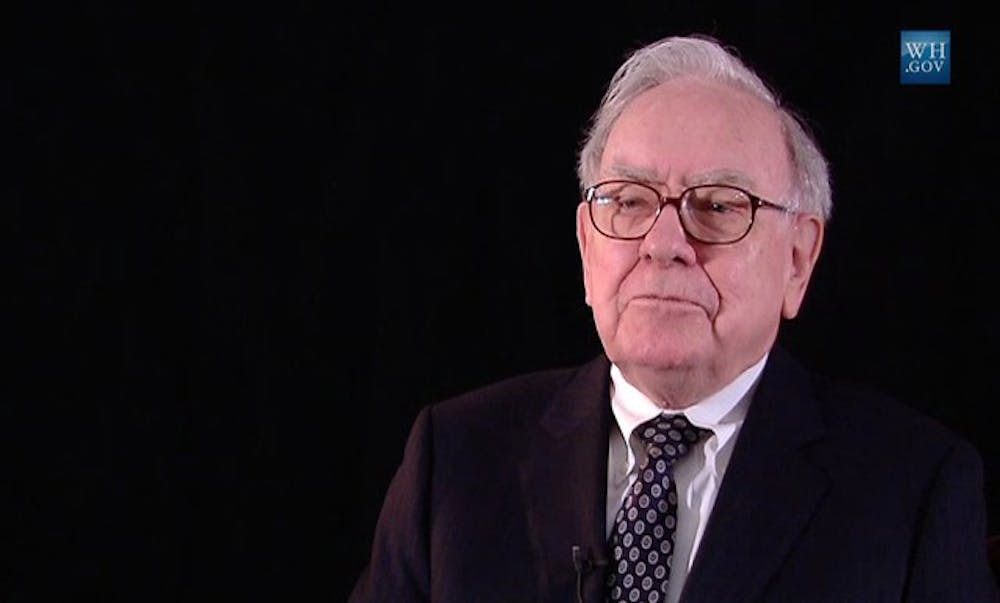Staff members from The Daily Progress, a local Charlottesville newspaper, announced their intentions to unionize as the Blue Ridge Guild a few weeks ago. Following an election Wednesday, the union was confirmed 12-1, making the Blue Ridge Guild a unit of the Washington-Baltimore NewsGuild organized by the Communications Workers of America. In Virginia, the worst state in the country for workers, unionizing is a rare occurrence, but it is also notable for being at a newspaper. This effort comes as their corporate owner, Warren Buffet’s company Berkshire Hathaway, has reported $21 billion in profit earlier this year, while also shrinking the newspapers it owns. The unionization of The Daily Progress is a welcomed response to what has been an attack on local and national newsrooms, print and digital, across the country. But it is also only the beginning of what needs to be a larger fight to preserve the free press in America.
On their site, the Blue Ridge Guild cites the corporate policies as their enemy, and the primary reason they’re organizing, “Currently, the company can make unilateral decisions without our input. The only way to ensure that we have a voice and say in the decisions that affect our livelihoods is by forming a union and bargaining together for a contract.” This makes sense. The corporate owners of newspapers are by nature more concerned with profit than maintaining sufficient staff and producing quality journalism.
Locally, newspapers have suffered from lower readership, the rise of digital platforms and predatory billionaires looking to diversify their portfolio at the cost of community institutions. Across the country, it’s often the ultra-wealthy that own the biggest newspapers. It should be a red flag for everyone that the world’s wealthiest man, Jeff Bezos, owns The Washington Post, or that Rupert Murdoch, a conservative-ideologue, owns The Wall Street Journal.
Journalism faces a dual threat — pure ownership by billionaires using them as ideological buffers from working-class resistance in combination with the shutting down of institutions that provide valuable reporting to the public. The former has happened over the last few decades as billionaires like Sheldon Adelson have morphed newspapers like the Las Vegas Review-Journal into their own personal megaphone to support Republican candidates and the gaming industry, for example. In terms of the latter, Deadspin after a corporate acquisition, saw one of its editors fired and many other staffers leave for “not sticking to sports.” The transformation of newspapers into extensions of the billionaire class then becomes something that dramatically warps our politics.
While the use of media as a buffer from working-class rage is straightforward, the shutting down of newspapers has been a product of corporate consolidation. A study conducted by the University of North Carolina Hussman School of Journalism and Media showed that there may only be two major media companies investing in newspapers by the end of 2018 and many others are already owned by investment companies that also fund ventures unrelated to journalism. Furthermore, one in five local newspapers have shut down over the last 15 years, just as this massive consolidation of newspapers occurred. While we shouldn’t consider newspapers as a mythic savior of democracy, the fact remains that communities lose when there is less press to cover local events, challenge powerful institutions and educate readers on the state of their community.
It is not only print newspapers that have fallen prey to corporate policies. Sports Illustrated, after being acquired by Meredith Corp, announced mass layoffs. Splinter, a smaller, progressive news site was also gutted by its parent company.
It is also essential to note the outsized power of billionaires in shaping the press, even if they are not the owners. Gawker was sued out of existence by Peter Theil nearly three years ago. Wherever the rich and powerful are, they are a threat to journalism and a threat to democracy. As the final piece on Gawker so eloquently puts it, “The chief rule of establishment journalism that it [Gawker] violated to its detriment, it seems, is the one that recommends against pissing off billionaires.”
The Blue Ridge Guild, by asserting their intention to unionize shows a path to resist corporations' carving up of newspapers. This fight to preserve newspapers is happening on the national level as well, and has to accelerate. For all the value a union does in one newspaper, website, and media organization, the only true way to protect the free press is to rid ourselves of billionaires and vampire-like corporations.
To aid in this fight, Democratic presidential candidate Sen. Bernie Sanders, I-Vt., put forward an aggressive plan to combat mergers in the journalism industry, but beyond that, we need to fight for media coverage that prizes adversarial relations to the rich and powerful.Looking across the Atlantic, British Labour Party Leader Jeremy Corbyn and the Labour Party put forward an outline of what independent, free and robust journalism can look like — perhaps the U.S. should follow suit.
The continued existence of newspapers can question power and celebrate communities. The perseverance of newspapers isn’t something that should be left up to the ultra-wealthy. Until legislation can codify protection of newspapers from hedge funds and the ultra-wealthy unionizing will prove to be the main means of defense of free-press.
Jake Wartel is an Opinion Columnist for The Cavalier Daily. He can be reached at opinion@cavalierdaily.com.





